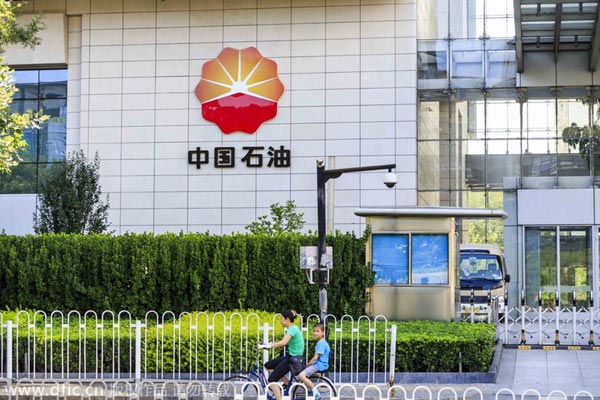OPEC turn down Chinese requests for extra oil
(Agencies) Updated: 2015-05-21 10:18
|
 |
|
The headquarters building of CNPC (China National Petroleum Corporation), parent company of PetroChina, in Beijing, China, 13 July 2014. [Photo/IC] |
Saudi Arabia and its main Middle East OPEC partners are turning down Chinese requests for extra oil as they hold back fuel for their own refineries just as demand from the world's biggest crude importer hits new records.
While the Saudi and other refusals for additional crude supplies may not be part of a new pricing strategy, the rejections to their biggest client help explain a 40 percent rise in oil prices this year as Chinese importers have had to seek more oil from other suppliers in what analysts say is still an oversupplied market.
Senior Chinese oil traders told Reuters the Saudis have turned down requests from Chinaoil and Unipec - the respective trading arms of PetroChina and Sinopec - for extra cargoes of crude for May and June loadings, forcing them to seek supplies from producers in West Africa, Oman and Russia.
Saudi Arabia "used to provide as and if we asked for extra cargoes on top of contract during the first four months of the year, but not for May and June," said a trader with one of China's biggest oil importers on condition of anonymity as he had no permission to talk to media.
Another source with a Chinese refinery that takes Saudi oil said Saudi heavy crude was "a bit tight" in May and June.
Reuters pricing and trade flow data show a 40 percent rise in Brent crude since January has coincided with a more than 10 percent fall in overall Middle East supplies to China , although in historical terms they remain high.
"Our analysis shows that Saudi flows to China have fallen quite a bit in May and their overall market share in China has also fallen," said Yan Chong Yaw, Director of Thomson Reuters Oil Research and Forecasts in Asia.
The research group's latest China crude report shows Saudi Arabia's share of Chinese imports dropped to just over 30 percent in May from 36.5 percent in April.
Saudi Aramco, which was not available for comment, had already reduced contractual supplies to some Japanese and South Korean customers in April.
The trader with one of China's big importers said requests for more crude to Kuwait and the United Arab Emirates - Saudi Arabia's closest partners in the Organization of the Petroleum Exporting Countries (OPEC) - were similarly turned down.
PetroChina and Sinopec officials were not available and seldom comment on trading activity.
With imports of 7.4 million barrels per day (bpd), China overtook the United States as the world's top crude oil buyer in April.
- Premier Li urges harnessing China's manufacturing prowess
- OPEC turn down Chinese requests for extra oil
- 'Beautiful China 2015, Year of Silk Road Tourism' held in Italy
- Surge in Chinese arrivals drives record NZ visitor numbers
- China eyes investment funds to help 'capacity exports': NDRC
- Volvo recalls faulty trucks in China
- Chinese shipping company looks forward to new Suez Canal
- Investors think big as small-caps fuel rally

















